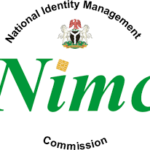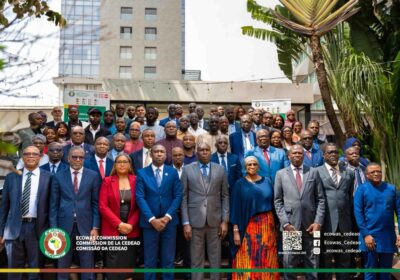ECOWAS and Partners Strengthen Regional Security with Transfer of WAPIS to Member States.
By Raymond Enoch
In a strategic move aimed at bolstering regional security, ECOWAS and its international partners officially handed over the West African Police Information System (WAPIS) to national and regional authorities at a ceremony held in Abuja Nigeria.
The WAPIS transfer marks a pivotal milestone in the ongoing effort to enhance security cooperation in order to combat transnational crime in West Africa.
WAPIS, a critical security project designed within the framework of a strategic collaboration between ECOWAS, INTERPOL, and the European Union, provides a robust platform for the collection, centralization, and secure exchange of police data across the region. With more than 700,000 digitized records now integrated into the system, WAPIS is poised to significantly enhance the operational capacity of member states, enabling them to respond more effectively to the ever-evolving threats posed by organized crime and terrorism.

The handover event was attended by high-level representatives from various institutions, underscoring the political will and collective commitment to ensuring that WAPIS will continue to thrive under the ownership of West African nations. This marks not just a technical achievement but also a testament to the region’s growing resolve to tackle shared security challenges.
“The transfer of WAPIS is a significant step towards improving our regional security architecture,” said an ECOWAS spokesperson during the ceremony. “It will empower our law enforcement agencies with the tools they need to combat crime and terrorism more effectively, while strengthening regional cooperation and trust among Member States.”

WAPIS is designed to serve as a secure database that facilitates the exchange of vital police information, fostering better coordination between countries in the fight against criminals who often operate across borders. The system provides a unified approach to tackling security threats, from organized crime to terrorism, by enabling the rapid sharing of crucial information like criminal records, fingerprints, and other intelligence.
The successful implementation of this initiative highlights the importance of international partnerships in strengthening security frameworks. By leveraging the expertise and resources of key stakeholders, WAPIS not only equips law enforcement agencies with the necessary tools but also ensures that they are better prepared to address both current and emerging security challenges.
With the official transfer now complete, ECOWAS and its partners are confident that WAPIS will play a critical role in creating a safer, more secure West Africa. The next phase will focus on ensuring the system’s sustainability, as well as empowering national authorities to take full ownership and responsibility for its continued success.
As the region faces increasing security threats, the operationalization of WAPIS is more than just a technological achievement. It symbolizes the collective resolve of West African nations and their international partners to work together in securing a safer future for the region.
In the coming years, WAPIS will no doubt play a crucial role in helping West African countries not only fight crime more effectively but also foster a sense of shared responsibility and trust in their collaborative efforts to safeguard the region’s peace and stability.
This historic transfer signals a bright future for regional security in West Africa, providing a much-needed tool to fight the rise of transnational crime while paving the way for more unified and coordinated law enforcement across the continent.








